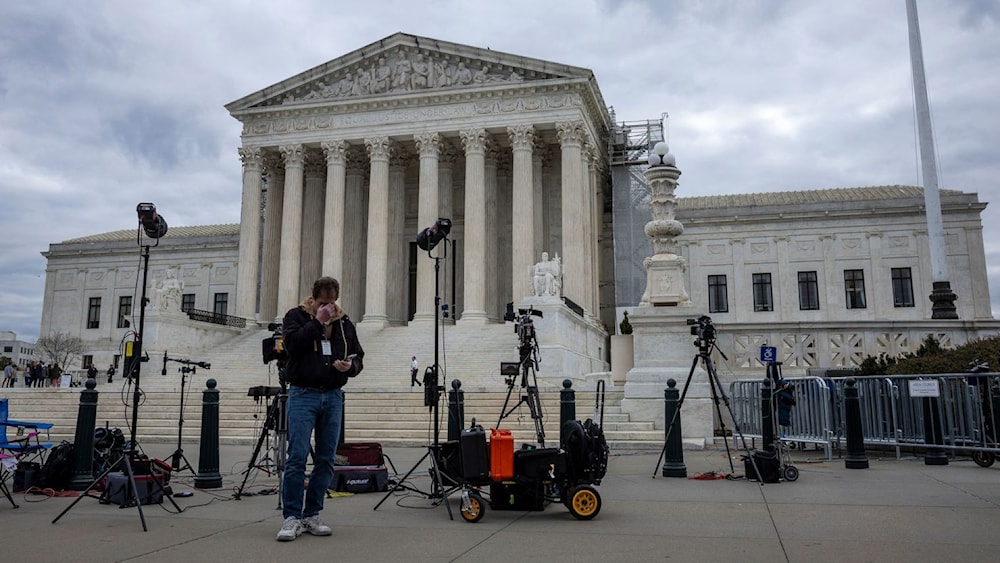US Supreme Court rules in social media moderation for public officials
The decision came in reaction to a situation in which a municipal manager in Michigan disabled a user and erased comments from his social media page after the user voiced dissatisfaction with the city's COVID-19 policy.
-

The US Supreme Court is seen in Washington, DC ahead of the court's expected release of its decision in Trump v. Anderson on March 4.(AP)
The US Supreme Court ruled on Friday that public officials who prohibit people from posting on their social media accounts are engaging in deprivation of rights if they have governmental authority and claim to wield it in their online activities.
The decision detailed that "A public official who prevents someone from commenting on the official's social-media page engages in state action under Section 1983 only if the official both (1) possessed actual authority to speak on the State's behalf on a particular matter, and (2) purported to exercise that authority when speaking in the relevant social-media posts."
Section 1983 allows individuals to bring suit against persons who deprive someone of a federal constitutional or statutory right while acting on behalf of the state.
The decision came in reaction to a situation in which a municipal manager in Michigan disabled a user and erased comments from his social media page after the user voiced dissatisfaction with the city's COVID-19 policy.
The user challenged the city manager, arguing that he has the right to remark on the official's website since it is a public forum. At first, a US circuit court sided with the city manager, claiming that he used the social media website in a private capacity.
However, the Supreme Court overruled the lower court's decision and remanded the case.
Justice Amy Coney Barrett's written decision dictates that there is difficulty in discerning whether a government official's online posts regarding jobn-related matters are official or private speech.
Barrett stated that a public figure who fails to maintain personal posts in a "clearly designated" personal account increases their possible responsibility.
Biden administration ordered not to block speakers
In July last year, a federal judge in Louisiana ordered top Biden administration officials and agencies not to contact social media platforms to block speakers and opinions they disagree with.
The decision came in a case brought by the attorneys general of Louisiana and Missouri, who alleged that the Biden administration was attempting to muzzle viewpoints and speakers who questioned its Covid policies and the legality of the 2020 election.
US courts are increasingly being requested to serve as arbiters in disputes over social media content, which has become increasingly controversial.
Conservatives allege that the platforms limit their ideas, while Liberals argue that the platforms do not do enough to remove false, misleading, and harmful content.
Republican legislators have shifted their focus away from antitrust measures to address concerns about social media content and toward probing what they call conservative censorship.
The detailed ruling
In his ruling on Tuesday, US District Judge Terry A. Doughty of Monroe, Louisiana, stated that large swaths of the government, including the Department of Health and Human Services and the Federal Bureau of Investigation, could not communicate with social media companies for "the purpose of urging, encouraging, pressuring, or inducing in any manner the removal, deletion, suppression, or reduction of content containing protected free speech."
“The present case arguably involves the most massive attack against free speech in United States’ history,” Doughty wrote, adding that “in their attempts to suppress alleged disinformation, the federal government, and particularly the defendants named here, are alleged to have blatantly ignored the First Amendment’s right to free speech.”
In imposing a preliminary injunction, he stated that the agencies may not meet with social media companies to discuss removing individual posts or request updates on their efforts to remove content. According to the judgment, the government can still warn platforms about posts revealing crimes, national security threats, or foreign attempts to influence elections.

 4 Min Read
4 Min Read










